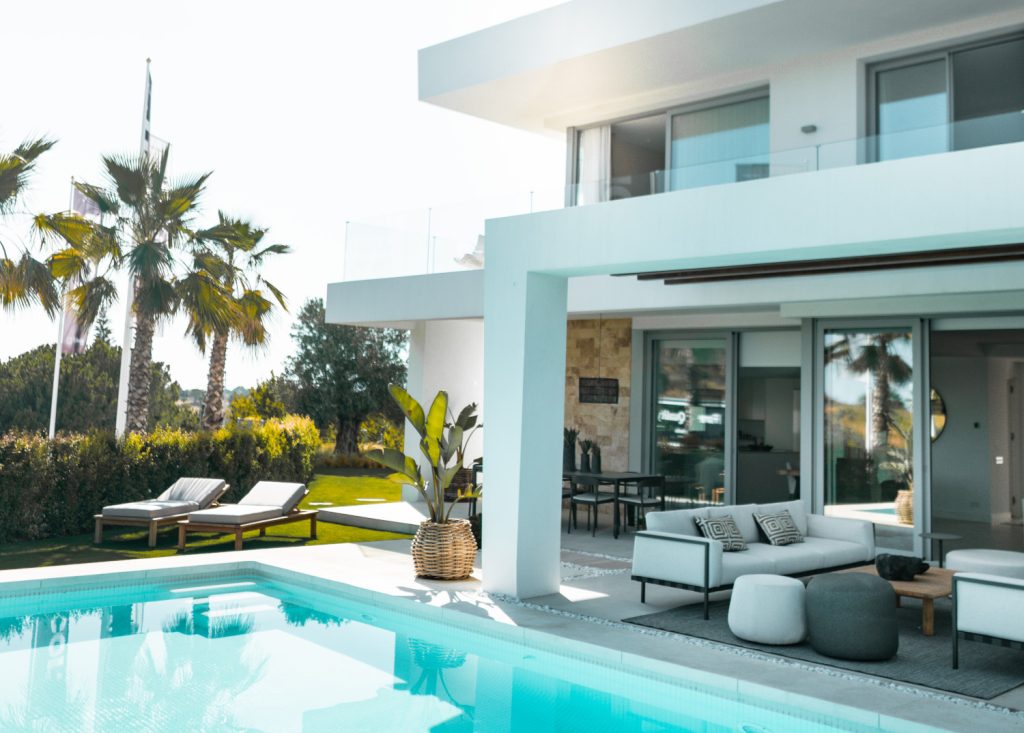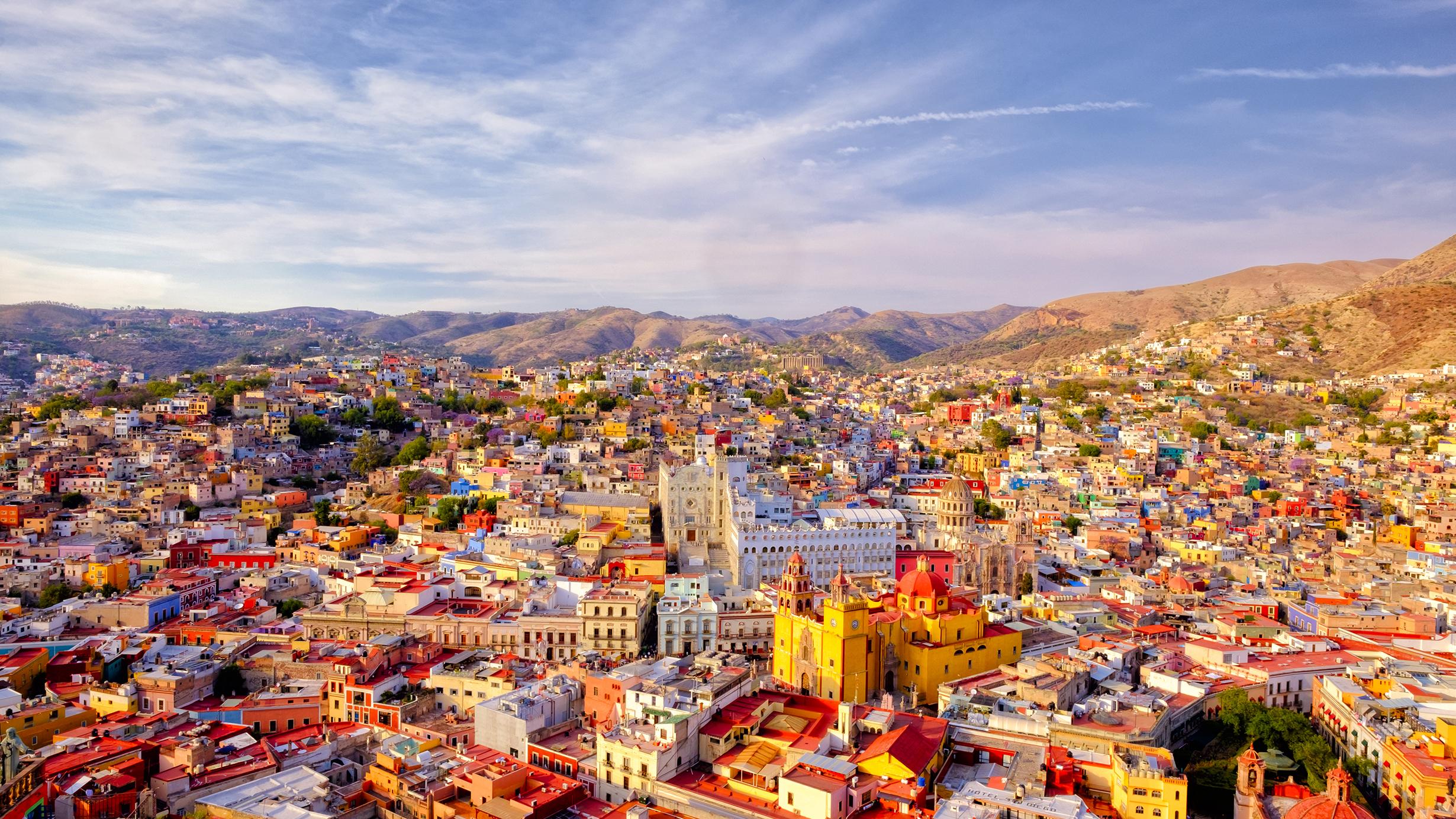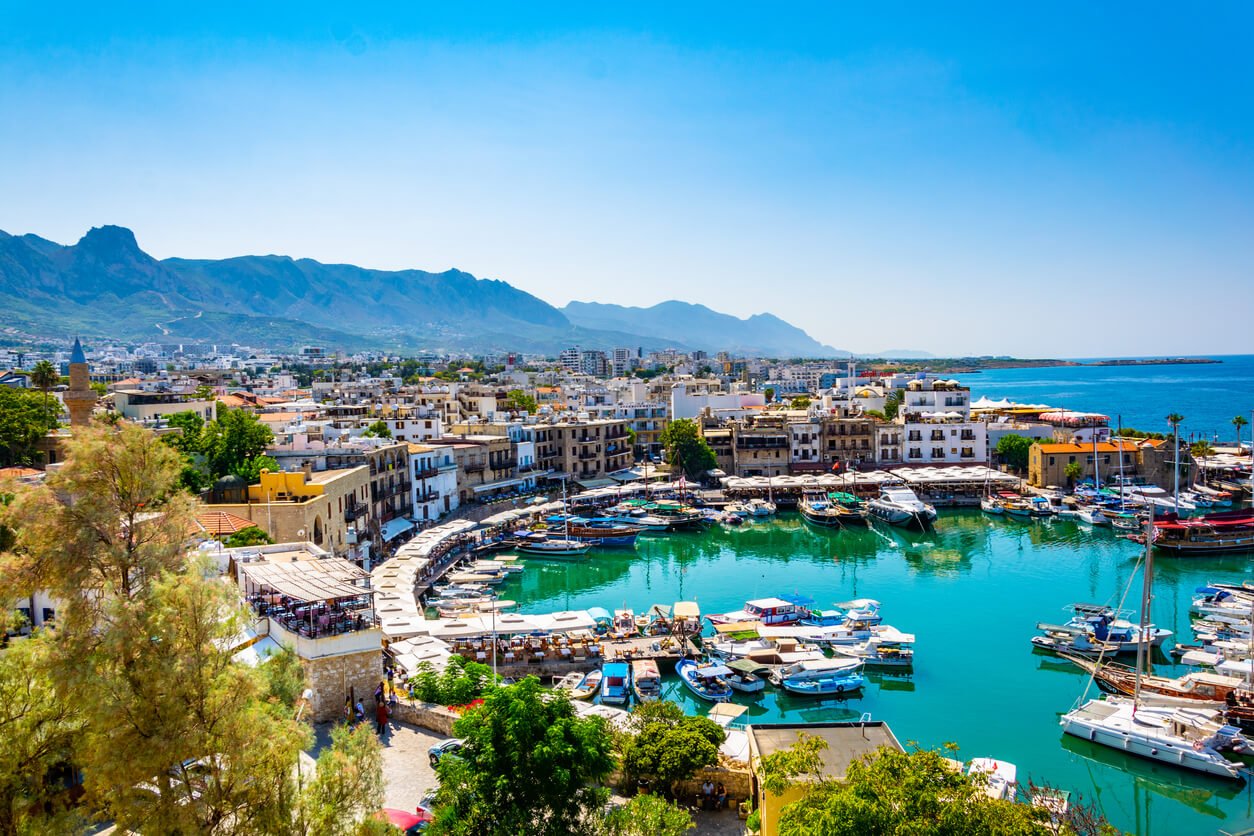
Are you looking for a residence to live in Mexico or an investment opportunity? The ultimate destination of your property can make a difference. Nevertheless, one fact remains indisputable: investing in property in Mexico can be a unique way to build a reliable portfolio and diversify your investments.
Introduction to property investment in Mexico
An emerging and welcoming nation
Property investment in Mexico is continuously evolving, driven by the growing interest of foreign investors in the Mexican property market. Indeed, this country is widely recognized as an emerging nation welcoming to Foreign Direct Investment (FDI). In 2021, it ranked ninth globally in FDI recipients due to its investor-friendly stance toward international investors.
The majority of investments come from the United States, Canada, Spain, Japan, and Germany. The manufacturing sector, particularly the automotive industry, financial and insurance services, transportation, retail and wholesale trade, mining and quarrying, and communications are the primary beneficiaries of significant foreign investments.
Cities near the U.S. border, hosting numerous assembly plants (including the Tesla factory in Monterrey), and the capital, Mexico City, are the main areas of concentration for these foreign investments.

High property demand
Mexico is a highly sought-after vacation destination experiencing a strong demand for property, hosting 51 million tourists in 2020, ranking it third globally. A diverse country rich in ancestral culture, Mexico boasts a remarkable architectural heritage. Key tourist destinations such as Cancún, Tulum, Los Cabos, Puerto Vallarta, and the Riviera Maya present both attractive and lucrative investment opportunities.
This is why property investments in Mexico can be an excellent means of building a stable portfolio and diversifying your investments. However, before making a property investment, it is crucial to thoroughly understand the regulations and legal requirements in force in the country.
What types of property investments are available in Mexico?
There are several types of property investments available in Mexico.
Firstly, there are residential properties such as houses, apartments, and condominiums. These types of properties are popular among both national and international investors due to their significant earning potential and high demand in certain tourist areas. Secondly, there is commercial real estate, which includes land and commercial properties such as offices, industrial plots, and shopping centers. Finally, there are also shared ownership property investments, such as timeshares and investments in tourist complexes.

The Mexican property market: What you need to know
The Mexican property market has certain specifics that are crucial for any investor or potential buyer to be aware of. The rules applicable to « non-citizens » investing in property in Mexico vary depending on the region and the location of the property. In accordance with the Political Constitution of the United Mexican States, private property within the national territory can only be owned by Mexicans by birth or naturalization or by companies recognized as Mexican. Nevertheless, foreigners have the opportunity to acquire housing in Mexico, provided they meet specific criteria detailed below.
Furthermore, costs can vary significantly depending on the region of the country and the condition of the property. Therefore, it is essential to have a good understanding of local property prices before embarking on a purchase. Finally, it is important to consider the legal and tax aspects related to the purchase of property in Mexico to minimize potential risks.
Regulations and legal requirements in Mexico
The regulations applicable to foreign nationals investing in Mexican real estate vary depending on the location of the property.
The concept of Restricted Zone or "Zona Restringida"
In accordance with the Mexican Constitution of 1917 and the Mexican law on foreign investments, individuals who are not citizens of the country are prohibited from acquiring property located within 100 kilometers of Mexico’s land borders and within 50 kilometers of its coastlines.
This area reserved for Mexican residents is commonly referred to as the « restricted zone » or « Zona Restringida. »
Property located outside the Zona Restringida
Foreigners can purchase properties in full ownership anywhere outside the regulated zone. The acquisition process is similar to buying property, but obtaining prior authorization from the Ministry of Foreign Affairs (Secretaría de Relaciones Exteriores) is necessary.
To ensure the smooth progress of property acquisition in Mexico, it is imperative to draft a sales contract and engage the services of a Public Notary (Notario Público) to register the property sale with the Registro Público de la Propriedad (Public Property Registry of Mexico).
Although purchasing a property outside the regulated zone does not pose legal issues, it is recommended to seek professional advice to govern the conditions of the sale, including the price, renovations, maintenance, and property transfer. Failure to adhere to this recommendation can lead to complications, sometimes challenging to resolve from abroad due to language barriers, unfamiliarity with Mexican legislation, and difficulty in contacting the seller.

Buying a property in the Restricted Zone is possible!
If as a foreign buyer, you wish to acquire property in the regulated zone, you must use a mechanism called Fideicomiso (Fideicommissary Trust).
This acquisition system involves three parties:
- The grantor (Fideicomitente) who transfers ownership of the property (i.e., the seller).
- The trustee or owner of the property (usually Mexican banks).
- The beneficiary (Fideicomisario), the transaction beneficiary (or the buyer).
In summary, the beneficiary holds property rights, except for the status of the actual owner due to the constraints of the Mexican investment law mentioned above.
The trustee is compensated for their role, and the contract is established for a duration of 50 years, automatically renewable once. Subsequently, renewal must be approved again by the Ministry of Foreign Affairs.
Regarding expenses, it is important to note that notary fees typically represent around 2% of the property price. Additionally, a sum of £1730,51 is required for the establishment of the Fideicomiso, followed by registration fees of £432,63 and an average annual tax of $400 (approximately £315,00).
As with the purchase of property outside the regulated zone, it is necessary to establish a contract specifying the obligations and conditions of the sale, engage a notary, and register the property transfer with the Mexican public registry of property. Prior authorization from the Ministry of Foreign Affairs is also required. Finally, seeking legal advice or guidance from international real estate professionals is recommended to achieve the best possible outcome.
The fees for creating a property trust in Mexico vary depending on the transaction value. However, the initial fees generally amount to around 1,000 USD (£787.50), while ongoing trust fees can range from 500 USD (£393.75) to 2,000 USD (£1,575.01) per year. This is a cost you’ll need to consider when purchasing property near the maritime or land border in Mexico.
On the other hand, if you buy property within the specified distance limits, you are not required to establish a trust, and you can own the property in your name.
In Mexico, property taxes are typically very affordable (a few hundred euros). The exact amount of property tax varies depending on the property’s location in Mexico. The amount due is calculated based on the cadastral value determined by the municipality where the real estate is located.
The steps to buying property in Mexico
Purchasing property in Mexico involves several steps. Here are the main ones.
Step 1: Find a real estate consultant
First and foremost, it is important to find an experienced real estate consultant to help you find the property that suits you. Our iad Overseas consultants* specialize in Mexico purchases and speak English, making them capable of assisting you in finding the property of your dreams!
Step 2: Inspect and verify before finalizing your property purchase
Before finalizing the purchase of a property in Mexico, it is imperative to conduct inspections and verifications to ensure that the property is in good condition and complies with current standards.
It is highly recommended to enlist the services of a professional such as a building inspector or an engineer to perform a thorough inspection of the property. They will assess the quality of construction, structural integrity, the condition of the roof, electricity, plumbing, and air conditioning systems. These inspections and verifications help avoid unpleasant surprises, high costs for potential repairs, and delays in the purchasing process.
Ultimately, thorough inspections ensure a profitable and secure investment.

Step 3: Make a written initial offer
Once you have found a property and are ready to purchase, you need to make an offer. Even though Mexican law recognizes verbal agreements, it is strongly advisable to create a written contract specifying:
- The price
- Payment terms
- Payment date
- Earnest money deposit
- Timeframe for both the seller and the buyer
Once the seller has accepted your offer, proceed to make an earnest money deposit. This payment should be held by the real estate consultant or the buyer’s attorney.
Upon making the deposit, the promise contract (“contrato de promesa”) will be established. It binds the buyer and the seller within a timeframe for the execution of the purchase contract.
These conventions are generally observed when acquiring property in Mexico. If your offer is accepted, you will need to engage an attorney to ensure that all documents are legal and that you, as the buyer, are protected. The attorney will need to apply for a property purchase permit in Mexico from the General Directorate of Legal Affairs.
If everything is in order, you can proceed to Step 4.
Step 4: Purchase promise contract or "contrato de promesa de compraventa"
The purchase promise contract for property is a legal agreement, signed before a Mexican public notary, between the buyer and the seller of the said property.
In accordance with Mexican legislation, the purchase promise binds the responsibility of both parties. Once all conditions have been met to finalize the purchase contract, neither party can retract.
This contract remains a preparatory agreement. It outlines the obligation to undertake a promise, but ownership is not transferred between the promising parties.
Step 4bis: Implementation of the trust (Fideicomiso)
If you are purchasing property in a restricted zone, you will need to establish a trust.
The fideicomiso is a type of property trust managed by a Mexican bank of your choice, also known as the trustee. This trust is established to protect your interests and those of the individuals you have chosen as beneficiaries, following the conditions outlined in the contract.
This step, undertaken with your legal representative, is essential for taking the necessary measures. You must request and receive the appropriate authorization from the federal Ministry of Foreign Affairs, register with the public property registry, and the national registry of foreign investments.
Step 5: Closing, acquisition tax, and other related fees
Closing costs are always the responsibility of the buyer. The real estate consultant cannot provide an exact amount in advance because the exchange rate tends to fluctuate. Even if the property value is measured in USD, it is recorded in Mexican pesos. To cover potential fees, you will need to advance approximately half of the expected fees to the notary.
Here is the breakdown of closing costs, item by item:
For the buyer (without trust, i.e., away from the coasts and border):
- 3% acquisition tax to become the owner.
- Registration fees of 1 to 2%.
- 1 or 2% notary public fees.
- Optional: £2,596.95 lawyer fees.
Buying through a trust:
- £1,298.47 for setting up the trust.
- £4322 registration fees.
- 3% property acquisition tax.
- Registration fees of 1 to 2%.
- 1 or 2% notary public fees.
- £432.82 annual fees.
Once the closing deed is completed, the notary will provide you with a notarized copy. This copy serves as your initial confirmation of ownership and can be used to transfer public services into your name.
Within three months from the closing date, the public registry will generate the final deed. This will include an electronic folio and copies of all certificates, along with payment details.
- It is important to familiarize yourself with the property laws and regulations of Mexico before purchasing a property to avoid any confusion or complications.
- Inspecting and verifying the condition of your property before buying is crucial.
- Consider having legal representation and guidance from a local real estate consultant, such as iad Overseas, to navigate the process smoothly.
Financing options for property purchase in Mexico
There are diverse financing options available for property purchases in Mexico. Mexican and international banks offer mortgage loans, along with financial institutions and private lenders. Mortgage loans are often provided as a percentage of the value of the assets or collateral presented.
In general, loans can cover up to 85% of a property’s value. While foreigners may only secure mortgage loans from specific banks, many of these institutions have specific programs for foreign buyers.
Here is a list of other banks present in Mexico:
- BBVA Bancomer
- City Banamex
- Société Générale
- Crédit Suisse
- Crédit Agricole
- HSBC
- Banco Azteca
Once again, the best advice to facilitate the property purchase is to engage a professional real estate consultant to assess all available options.






